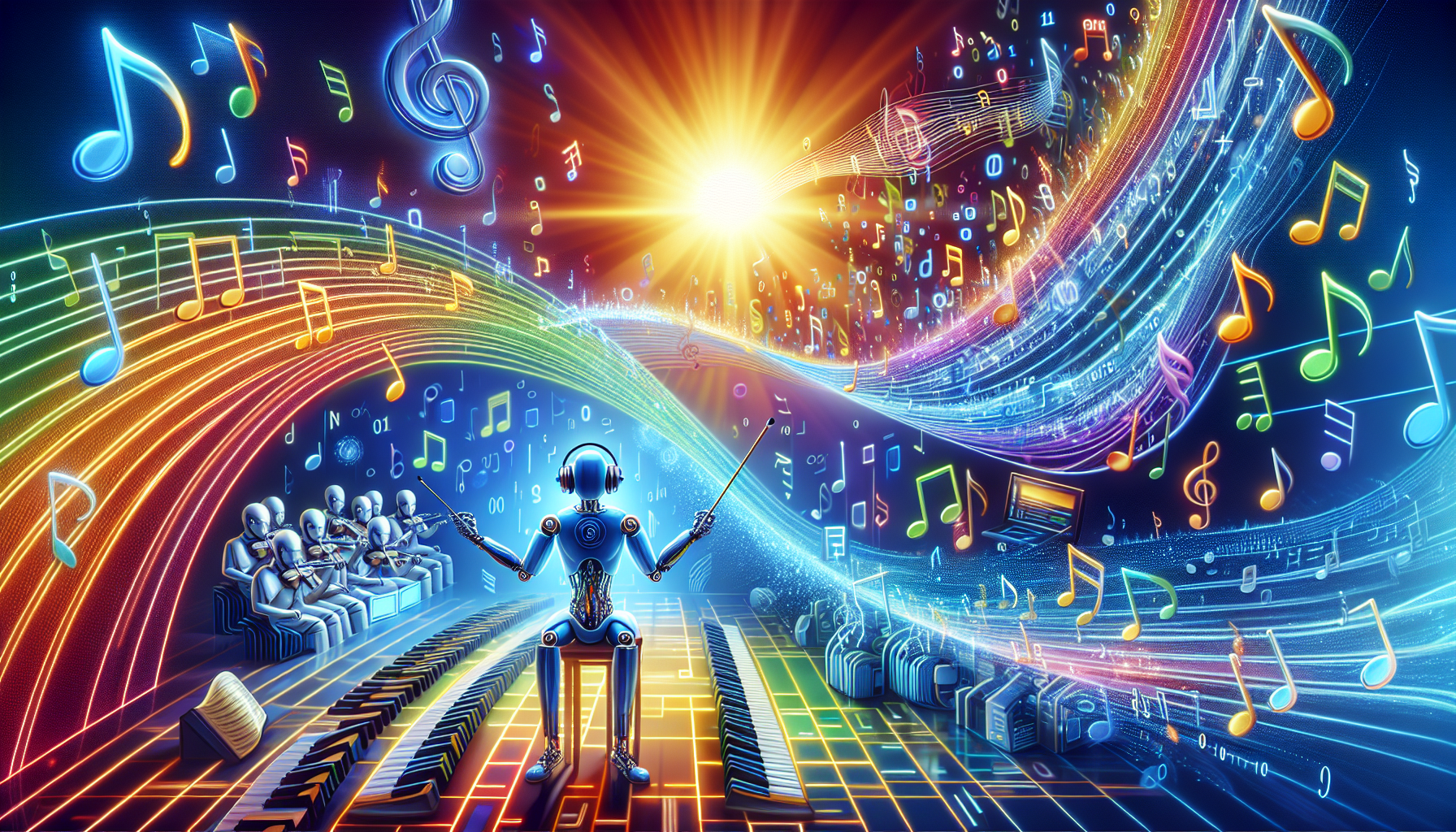
AI Meets the Music Industry
The harmony of the music industry is being tuned by the digital symphony of generative AI. Record labels, such as the renowned Universal Music Group, have started partnering with AI companies to develop state-of-the-art tools that promise to revolutionize music creation. These collaborations with tech powerhouses like KLAY Vision Inc. are the remix the industry didn’t know it needed, thrusting AI into the spotlight as both a composer and a conductor.
While these partnerships are as dynamic as a thrilling guitar solo, they’ve hit a discordant note with many musicians. Legends from bands like ABBA and Radiohead have raised their eyebrows—and their voices—concerned that these hi-tech tools might riff off their gigs. After all, nobody wants to be upstaged by a computer that doesn’t even have to buy concert tickets.
Striking the Wrong (or Right?) Chord
Cue the inevitable copyright concerns. Generative AI models have been accused of sneaking into the music library and borrowing some tunes without permission—a bit like that one friend who still hasn’t returned your vinyl collection. In response, heavyweight legal enforcers like the Recording Industry Association of America are dropping lawsuits faster than a new single, determined to ensure AI companies get their licensing in tune.
Beyond the courtroom drama, the philosophical stage is set with questions about creativity and authenticity. With AI’s ability to churn out music without breaking a digital sweat, there’s an underlying fear that the machines might outshine human musicians. This has prompted soul-searching discussions about whether AI-generated melodies can truly touch the human heart in the same way a passionate human strum can.
But it’s not all doom and digital gloom. The rise of AI also brings a democratizing touch to music creation, opening the studio doors to those who couldn’t previously afford the key. Whether you’re a novice or a seasoned artist, you can now create Grammy-worthy music from the comfort of your bedroom, much to the delight of your neighbors, I’m sure.
Harmonizing Human and Machine
In fact, when AI buddies up with human creators, the creative possibilities are endless. Platforms like Amper Music and AIVA leverage deep learning to support artists in their musical escapades. This collaboration allows for rapid prototyping—the kind that would make traditional composers spew their coffee with surprise.
However, the cultural playlist has its own skips and repeats. Aboriginal and Torres Strait Islander music creators have voiced concerns about AI’s potential for cultural appropriation—an uneasy specter looming over the industry’s revolution. This has been met with calls for regulatory symphonies to strike the right balance and protect innovative and cultural works alike.
Enter HarmonyCloak, a technological knight in binary armor. It cleverly prevents AI models from learning your tunes without altering your Grammy-winning sound, ensuring that your masterpiece remains forever yours. So, as the music industry dances with AI, it seems the answers might lie in finding the right tempo—a tempo where technology and tradition sync up in perfect harmony.






